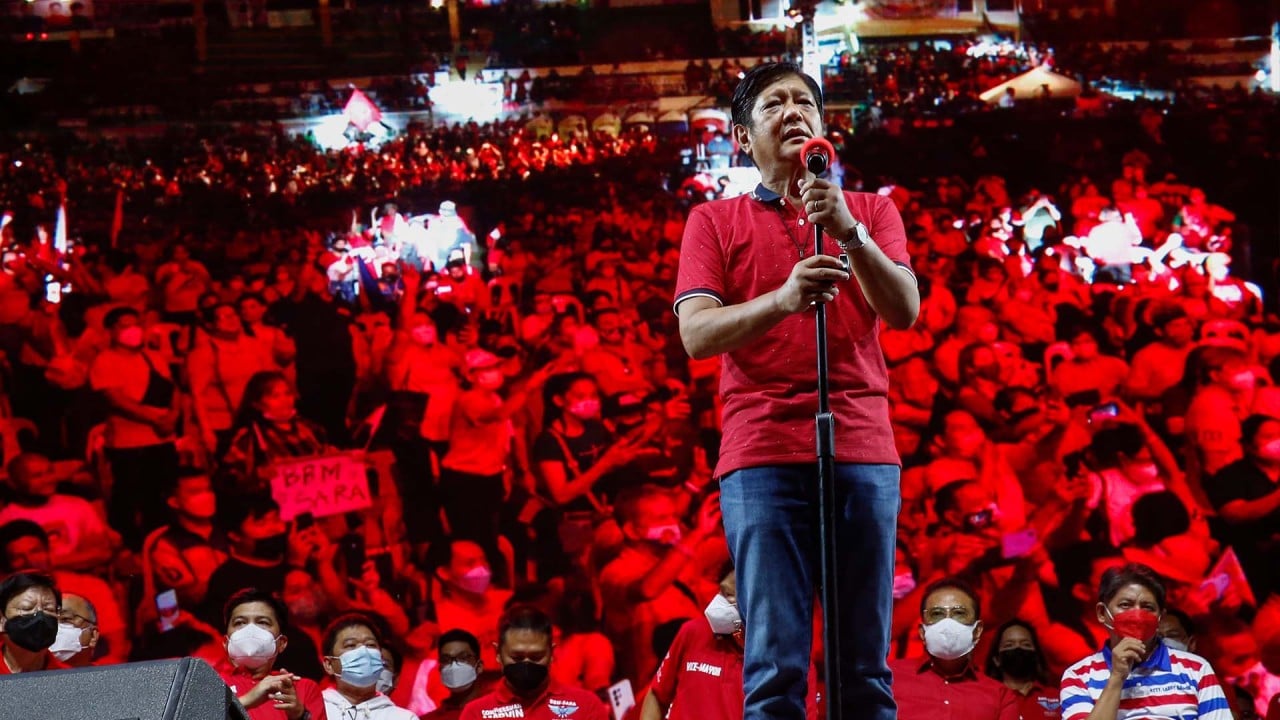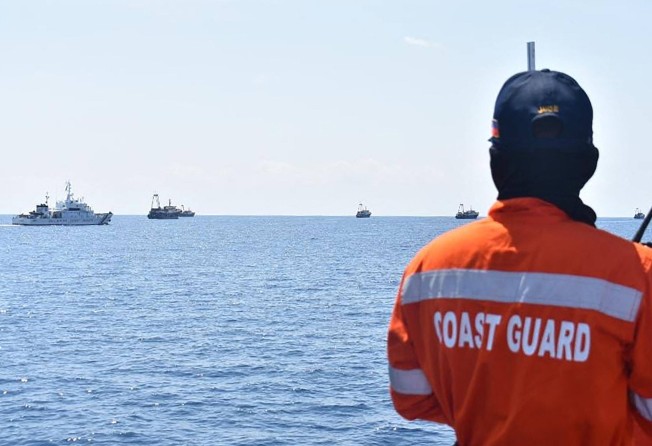
01:44
Bongbong Marcos Jnr leads in polls in final weeks of Philippine presidential election campaigning

On May 9, Philippine voters will elect a new president to succeed Rodrigo Duterte. Philippine policy in the South China Sea, as well as towards China and the US, have become major campaign issues. In recent presidential debates, candidates were given the opportunity to explain their position on these issues. Their responses were a mix of nationalist naivete, dangerous nonsense and neocolonialism.
Former defence secretary Norberto Gonzales suggested the Association of Southeast Asian Nations should adopt a majority vote on South China Sea issues, ignoring that this would go against the practice of consensus that defines Asean decision-making.
Vice-President Leni Robredo called for the Philippines to lead in finalising a code of conduct because Manila has the leverage of the “arbitral ruling”. This is naive nonsense. China has refused to recognise the arbitration decision, and thus it is unlikely that the Philippines can successfully use it as political leverage.
Some responses were neocolonialist in nature. Senator Panfilo Lacson advocated strengthening alliances with the US, the European Union, Japan and Australia. This would put the Philippines in China’s bullseye and would be in the strategic interests of the Philippines’ former colonial master Japan.
Senator Manny Pacquio said the Philippines should not allow itself to be bullied by China. Although he was a great boxing champion who punched far above his weight, the same cannot be said of the Philippine military vis-à-vis China. It would be folly to try.
The most over-the-top response came from Manila mayor Isko Moreno, who advocated enhancing the presence of the Philippine military in the South China Sea. “Any foreign vessel entering our sovereign territory, I’ll make sure they’ll be a decorative item under the sea within the Philippine ocean,” he vowed. Not only would this be a violation of the UN Convention on the Law of the Sea, it would invite retaliation by China – economically, if not militarily.
What is most worrying is that some candidates seem willing to sacrifice Philippine ideational independence to enable the US’ anti-China strategy. Not only would this keep the Philippines beholden to its former colonial master for its defence but also make the country a target for China in the outbreak of armed hostilities.
Although their views are supported by vocal Americanophiles, they are not shared by the likely winner, Ferdinand Marcos Jnr. Barring an April surprise, Marcos Jnr is almost certain to succeed Duterte in the election, so his views are much more significant. And it appears that he will more or less continue Duterte’s policy towards China and the South China Sea.
Critics contend that Marcos Jnr does not comprehend the details of the issues. If so, he is not alone among the candidates. But more importantly, he appears to see the big picture. Like Duterte, he prefers to set the arbitration ruling aside. “It’s no longer available to us,” he said of the ruling, which was dismissed by Beijing as “a political farce”. “A bilateral agreement is what we are left with”.
He may well agree with Duterte’s strategic reasoning that US power in the region is waning and that China’s is rising. So the Philippines will have to live with China in the long term.
Duterte foresaw the dire consequences of immediately pressing the South China Sea issue and decided that the costs to the Philippine people would far outweigh transitory national pride. He saw the situation as requiring deft hedging until a time more ripe for favourable resolution.
So he tried to negotiate shared access to resources. The result so far has been some continued access to fisheries for Filipino fishermen and the possibility of “joint development” of any oil and gas. More importantly, Philippine-China relations – including economic relations – remain good.
The alternative advocated by his critics – implementing the arbitration decision – would be likely to result in no access to the Philippines’ own resources, and economic, political and even military retribution by China.
In this election, the critics of Duterte’s China policy have been vociferous. But the voters are about to ignore the critics’ concerns – at least as a determining factor in their choice of president. Indeed, the anti-China, pro-US candidates supported by elite Americanophiles are losing.
Now we will see the real depth of the pro-US camp’s support for the Philippines’ flickering and fragile democracy. Will they accept this reality, or will they keep trying to effect regime change that benefits America?
Mark J. Valencia is an adjunct senior scholar at the National Institute for South China Sea Studies, Haikou, China